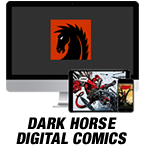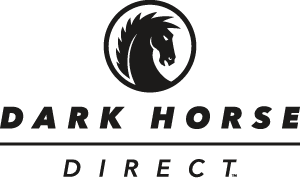Manga Monday: Astro Boy Omnibus Volume 1
 A few years ago, I was walking around Dark Horse’s offices in Milwaukie, OR, when I ran into a tourist from Japan. Japanese visitors and students are people you might encounter in Portland (there is an odd thrill for an otaku to hear the language being spoken ten feet down the aisle in Fred Meyer) but although Dark Horse has received many Japanese visitors on business over the years, I had never encountered an ordinary tourist in Milwaukie before. He was a senior citizen, and it turned out now that he was retired, he was pursuing his hobby—going to small towns in America and collecting postcards from there.
A few years ago, I was walking around Dark Horse’s offices in Milwaukie, OR, when I ran into a tourist from Japan. Japanese visitors and students are people you might encounter in Portland (there is an odd thrill for an otaku to hear the language being spoken ten feet down the aisle in Fred Meyer) but although Dark Horse has received many Japanese visitors on business over the years, I had never encountered an ordinary tourist in Milwaukie before. He was a senior citizen, and it turned out now that he was retired, he was pursuing his hobby—going to small towns in America and collecting postcards from there.
Of course, I mentioned that this unassuming small town (there is literally a soda fountain across the street from Dark Horse; John F. Kennedy made a stop in there when he was running for president in 1960) had a company that had been publishing manga in English for decades. But as popular as manga are in Japan, not every Japanese person reads them, and some Dark Horse titles that might be familiar to American fans might not be to a Japanese person met randomly on the street. Which title of ours should I mention that I could be absolutely sure that he would have heard of? I could have said we published Kozure Okami (Lone Wolf and Cub). But Dark Horse has released a still more famous manga—maybe the most famous manga of all time in Japan. “We publish Tetsuwan Atom,” I told him, and he smiled. Astro Boy.
Astro Boy was the most successful manga of the most successful manga artist, Osamu Tezuka. There were many other talented Japanese creators in his era that challenged him and sought to compete with him—because Tezuka gave them the mountains to struggle against, raised by his supreme energy as a worker (although he worked with assistants, he put his hand to 170,000 pages of art in his lifetime) and elevated by his brisk confidence in manga as a storytelling medium. The creative giants in art are known by this—there is as much virtue in defying them as deifying them. A rival truly worthy of Tezuka was Hayao Miyazaki, who in his blunt obituary of him (reprinted in Viz’s book Starting Point), wrote of how early in his career he realized that Tezuka had influenced him so much he needed to rip up his drawings and start over, if he was ever to realize his own vision as an artist.
Osamu Tezuka’s Astro Boy made its debut in 1951 and sold over 100 million copies in Japan by the time its creator died in 1989. The 1963 anime series based on Astro Boy is considered the beginning of the TV anime industry we know today—that same year it also became this first anime series on American television, syndicated through NBC. This week, you can see where so much began with Astro Boy Omnibus Volume 1, the first of eight omnibus volumes that will collect the entire series. Translated and with an introductory essay by the pioneer of manga scholarship in the U.S., Frederik L. Schodt, who knew and worked with Tezuka personally, it arrives in stores this Wednesday, September 23rd—Astro Boy. Yes, Dark Horse publishes it.
—Carl Horn
Manga Editor



